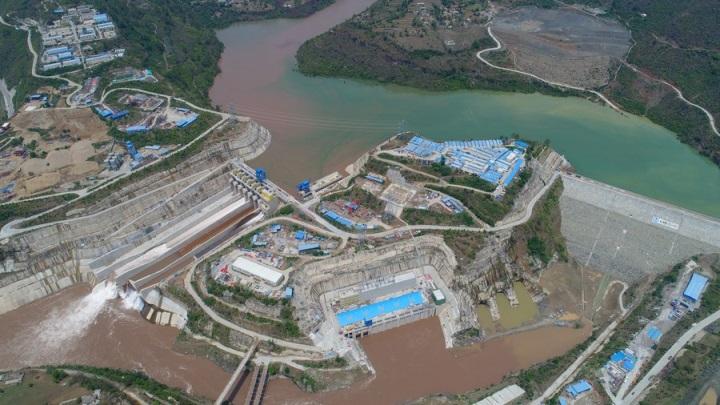By Azhar Azam
In a special ceremony to commemorate the 10th anniversary of the China-Pakistan Economic Corridor (CPEC), Chinese Vice Premier He Lifeng – as a special representative of China's President Xi Jinping – concluded his trip to Islamabad. During his visit, both countries signed six new documents to further "enhance cooperation" and strengthen the bilateral relationship.
The event, celebrated as the "Decade of CPEC," marked a new starting point to expand the project, to reinforce the "all-weather strategic cooperative partnership," foster economic and financial cooperation, advance high-quality development under the flagship project of the Belt and Road Initiative (BRI) and explore new areas of cooperation to deepen two-way trade and investment.
Indeed, CPEC has reached a milestone as it celebrates a decade of remarkable achievements such as supporting economic growth, infrastructure development and regional connectivity. The project is estimated to have garnered more than $25 billion of foreign direct investment from China for Pakistan to revamp the country's critical national infrastructure.
In addition to constructing 510 kilometers of highways and expanding the electricity transmission network by 886 kilometers, some 13 power generation projects with an installed capacity of 8,020 megawatts and six mega infrastructure projects have been completed, which include the Havelian-Thakot section of the Khyber Pakhtunkhwa-Karakoram Highway, the Multan-Sukkur (M-5) Motorway, the Hakla-D.I.Khan Motorway, Optical Fiber Cable, Eastbay Expressway and Orange Line Metro Train.
These projects have contributed to socio-economic development in the country by bridging the energy gap, ending years of blackouts caused by widespread power outages, upgrading road networks and creating roughly 200,000 jobs. "CPEC effectively helped Pakistan in improving the major transport networks from north to south and laid the foundation for a resilient infrastructure including ports, airports and roads and Orange Line Metro Train in Lahore," said Pakistan's minister for planning, development and reforms Ahsan Iqbal.

The view of Karot Hydropower Plant, Punjab province, Pakistan, June 22, 2022. [Photo/Xinhua]
Xi, in his congratulatory message, reiterated that CPEC was an "important pioneering project" of the BRI and vowed to stand firmly with Pakistan irrespective of the changes in the international landscape. His strong support would bolster Pakistan's efforts to maximize the benefits of Beijing's $25 billion investment in power, road and electricity and transport sectors with new agreements in areas such as agriculture and information technology, helping Pakistan to increase its exports.
Through CPEC, Pakistan has been aspiring to transform itself into an important economic hub. The first phase – mainly focused on removing key economic bottlenecks such as energy and infrastructure including development of the Gwadar port and laying optic fiber – addressed very basic issues as well as improved connectivity and trade linkages, facilitating Pakistan's regional integration. The second phase is even more promising for it could accelerate the South Asian country's economic growth with high-quality development and establishment of special economic zones.
The BRI's flagship project is one great way to realize Pakistan's potential and ambition to become a leading regional economy. As efficient multimodal transport networks including roads, railways and ports are critical to boost trade by linking domestic and international markets, CPEC has effectively laid the foundation of Pakistan's sustainable development.
Over diverse economic and security challenges, Pakistan hasn't been able to spend much of its gross domestic product (GDP) on infrastructure over the last four decades, costing the economy by an estimate of 2 percent to 2.5 percent of the GDP. CPEC, by meeting the funding gap and lifting Pakistan's energy capacity, has helped Islamabad build its infrastructure, divert more electricity to its industry, and power national economic growth.
A joint analysis of several economic corridors by the Asian Development Bank, the United Kingdom's Department for International Development, the Japan International Cooperation Agency and the World Bank in 2018 found the Chinese investments under CPEC had enormous potential to boost Pakistan's economy, reduce poverty, spread benefits and help those who were likely to be affected by the new trade route. Five years later, the project continues to show its strength. Once Pakistan comes out of its economic crisis, it will play a crucial role in Islamabad's journey toward economic prosperity and readiness to contribute to Beijing's vision of shared progress.
Azhar Azam, a special commentator for CGTN, works in a private organization as a market and business analyst and writes on geopolitical issues and regional conflicts.

 中文
中文



